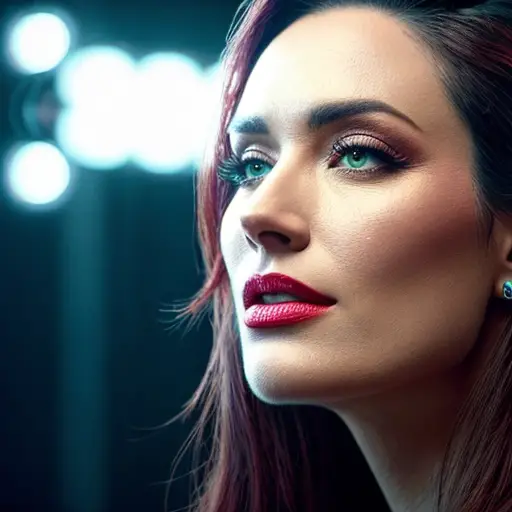Alright, folks, buckle up for a wild ride as we dive into the TikTok phenomenon and its impact on our precious mental health. Now, we all know TikTok is the land of viral dances, lip-syncing challenges, and cats doing the unimaginable. But behind the laughter and entertainment lies a darker truth. Spending hours scrolling through an endless stream of perfectly choreographed videos can leave us feeling like we're the only ones who can't dance to save our lives. And let's not even get started on the comparison game. Suddenly, our self-esteem takes a nosedive as we compare our lives to those of TikTok's overnight sensations. So, my friends, let's remember to take breaks, embrace our own unique talents (even if they don't involve synchronized moves), and remind ourselves that life is more than just a TikTok algorithm.
An interesting fact about how TikTok affects mental health is that while the platform can provide a sense of community and creative expression for many users, it can also contribute to feelings of inadequacy and low self-esteem. The constant exposure to highly curated and edited content, combined with the pressure to gain followers and likes, can lead to comparison and self-doubt. Additionally, the addictive nature of scrolling through endless videos can negatively impact sleep patterns and overall well-being.
Hold on tight, folks, because we're about to take a deep dive into the dark side of TikTok and its potential negative effects on our precious mental well-being. While TikTok may seem like a harmless platform for entertainment, it's important to acknowledge the hidden dangers lurking beneath the surface. From the constant pressure to look perfect and have a flawless life to the relentless cyberbullying and body shaming, TikTok can be a breeding ground for insecurities and self-doubt. The never-ending scroll of curated content can leave us feeling inadequate and disconnected from reality. So, let's remember to approach TikTok with caution, take breaks when needed, and prioritize our mental health above the pursuit of viral fame. After all, our well-being is far more important than any number of likes or followers.

In a world where TikTok dances and challenges have taken over our screens, it's time to address the elephant in the room: TikTok addiction and its psychological consequences. What starts as innocent entertainment can quickly spiral into an all-consuming obsession, leaving us glued to our phones for hours on end. The constant need for validation through likes and comments can create a vicious cycle, where our self-worth becomes dependent on the approval of strangers. This addiction not only affects our productivity and relationships but also takes a toll on our mental health.
The psychological consequences of TikTok addiction are far-reaching. As we become engrossed in the endless scroll of content, we may experience heightened levels of anxiety and stress. The fear of missing out (FOMO) becomes a constant companion, as we compare our lives to the seemingly perfect ones showcased on the platform. This constant comparison can lead to feelings of inadequacy, low self-esteem, and even depression.
Moreover, TikTok addiction can disrupt our sleep patterns, as we find ourselves staying up late into the night, unable to tear ourselves away from the captivating videos. The blue light emitted by our screens further exacerbates this issue, interfering with our circadian rhythm and leaving us feeling fatigued and irritable during the day. The lack of quality sleep can have a detrimental impact on our overall mental well-being, affecting our mood, cognitive function, and ability to cope with daily stressors.
Breaking free from TikTok addiction requires a conscious effort to regain control over our screen time. Setting boundaries and implementing digital detoxes can help us reclaim our time and prioritize our mental health. Engaging in alternative activities that promote relaxation, such as reading, exercising, or spending time with loved ones, can also redirect our focus away from the addictive allure of TikTok. Remember, it's essential to strike a balance between enjoying the platform's content and safeguarding our mental well-being. So, let's take a step back, breathe, and remind ourselves that there's a whole world beyond the TikTok algorithm waiting to be explored.
Fun fact: TikTok, the popular social media platform, has been found to have both positive and negative effects on mental health. While it can be a source of entertainment and creativity, studies have shown that excessive use of TikTok can lead to increased feelings of anxiety, depression, and low self-esteem. So, it's important to strike a balance and use TikTok in moderation to enjoy its fun content without negatively impacting mental well-being!
In the era of TikTok, it's crucial to prioritize and nurture our positive mental health amidst the digital frenzy. While TikTok can be a source of entertainment and connection, it's important to establish strategies for maintaining a balanced digital lifestyle. First and foremost, setting boundaries is key. Allocating specific time slots for TikTok usage and sticking to them can help prevent excessive screen time and the potential negative impact on our mental well-being. Additionally, practicing self-awareness and monitoring our emotional responses while engaging with TikTok can help us identify triggers and take necessary breaks when needed. Lastly, cultivating offline activities that bring us joy and fulfillment, such as hobbies, exercise, or spending time with loved ones, can create a healthy balance and remind us that there's more to life than the virtual world of TikTok. By implementing these strategies, we can navigate the TikTok era with a sense of control and prioritize our mental health in the process.